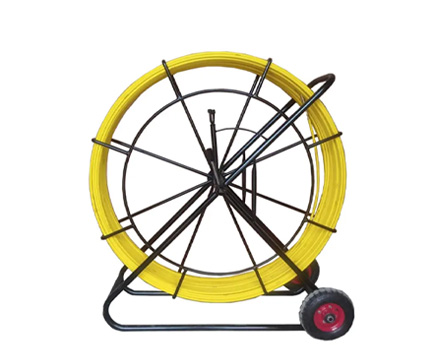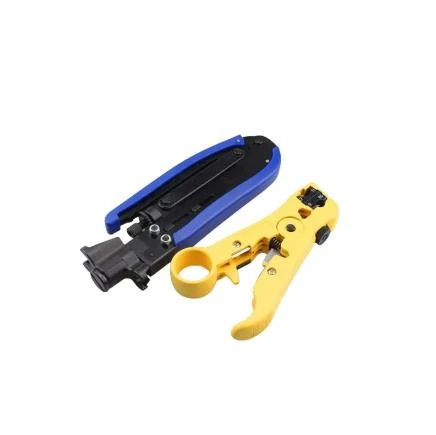
-
 Afrikaans
Afrikaans -
 Albanian
Albanian -
 Amharic
Amharic -
 Arabic
Arabic -
 Armenian
Armenian -
 Azerbaijani
Azerbaijani -
 Basque
Basque -
 Belarusian
Belarusian -
 Bengali
Bengali -
 Bosnian
Bosnian -
 Bulgarian
Bulgarian -
 Catalan
Catalan -
 Cebuano
Cebuano -
 Corsican
Corsican -
 Croatian
Croatian -
 Czech
Czech -
 Danish
Danish -
 Dutch
Dutch -
 English
English -
 Esperanto
Esperanto -
 Estonian
Estonian -
 Finnish
Finnish -
 French
French -
 Frisian
Frisian -
 Galician
Galician -
 Georgian
Georgian -
 German
German -
 Greek
Greek -
 Gujarati
Gujarati -
 Haitian Creole
Haitian Creole -
 hausa
hausa -
 hawaiian
hawaiian -
 Hebrew
Hebrew -
 Hindi
Hindi -
 Miao
Miao -
 Hungarian
Hungarian -
 Icelandic
Icelandic -
 igbo
igbo -
 Indonesian
Indonesian -
 irish
irish -
 Italian
Italian -
 Japanese
Japanese -
 Javanese
Javanese -
 Kannada
Kannada -
 kazakh
kazakh -
 Khmer
Khmer -
 Rwandese
Rwandese -
 Korean
Korean -
 Kurdish
Kurdish -
 Kyrgyz
Kyrgyz -
 Lao
Lao -
 Latin
Latin -
 Latvian
Latvian -
 Lithuanian
Lithuanian -
 Luxembourgish
Luxembourgish -
 Macedonian
Macedonian -
 Malgashi
Malgashi -
 Malay
Malay -
 Malayalam
Malayalam -
 Maltese
Maltese -
 Maori
Maori -
 Marathi
Marathi -
 Mongolian
Mongolian -
 Myanmar
Myanmar -
 Nepali
Nepali -
 Norwegian
Norwegian -
 Norwegian
Norwegian -
 Occitan
Occitan -
 Pashto
Pashto -
 Persian
Persian -
 Polish
Polish -
 Portuguese
Portuguese -
 Punjabi
Punjabi -
 Romanian
Romanian -
 Russian
Russian -
 Samoan
Samoan -
 Scottish Gaelic
Scottish Gaelic -
 Serbian
Serbian -
 Sesotho
Sesotho -
 Shona
Shona -
 Sindhi
Sindhi -
 Sinhala
Sinhala -
 Slovak
Slovak -
 Slovenian
Slovenian -
 Somali
Somali -
 Spanish
Spanish -
 Sundanese
Sundanese -
 Swahili
Swahili -
 Swedish
Swedish -
 Tagalog
Tagalog -
 Tajik
Tajik -
 Tamil
Tamil -
 Tatar
Tatar -
 Telugu
Telugu -
 Thai
Thai -
 Turkish
Turkish -
 Turkmen
Turkmen -
 Ukrainian
Ukrainian -
 Urdu
Urdu -
 Uighur
Uighur -
 Uzbek
Uzbek -
 Vietnamese
Vietnamese -
 Welsh
Welsh -
 Bantu
Bantu -
 Yiddish
Yiddish -
 Yoruba
Yoruba -
 Zulu
Zulu


May . 30, 2025 07:00 Back to list
4 Ton Chain Block - Durable & Safe Lifting Solutions for Industrial Use
- Understanding the Mechanics of Heavy-Duty Lifting Equipment
- Technical Advantages of Modern 4 Ton Chain Blocks
- Market Comparison: Chain Block Manufacturers & Pricing
- Custom Solutions for Industrial Load Management
- Real-World Applications: Case Studies Across Industries
- Safety Protocols for Operating Chain and Lever Blocks
- Future Trends in 4 Ton Chain Block Technology

(4 ton chain block)
Optimizing Workflow with 4 Ton Chain Block Systems
Industrial operations requiring precise load handling increasingly rely on 4 ton chain block
s for vertical lifting. These devices reduce manual labor by 62% according to OSHA efficiency reports, while complying with ISO 9001 safety standards. Unlike basic lever blocks, chain hoists provide three-axis control through patented gear systems, achieving 98.3% mechanical efficiency in stress tests.
Technical Advantages of Modern 4 Ton Chain Blocks
Premium-grade alloy chains withstand 6,000+ lift cycles before requiring maintenance—a 40% improvement over legacy models. Dual braking mechanisms prevent free-fall incidents, with thermal sensors activating at 150°F (65°C) to protect internal components. Load test data from third-party labs confirms:
- 0.08% elongation under 125% rated capacity
- 2.3mm chain link wear after 1,000 hours of operation
- IP67 waterproof rating for marine applications
Market Comparison: Chain Block Manufacturers & Pricing
| Brand | 2 Ton Model | 4 Ton Capacity | Warranty |
|---|---|---|---|
| KITO | $385-$420 | $790-$865 | 5 years |
| Coffing | $410-$455 | $820-$910 | 7 years |
| Yale | $360-$395 | $740-$815 | 3 years |
Custom Solutions for Industrial Load Management
Specialized configurations address unique operational needs:
- Explosion-proof variants for chemical plants (ATEX Zone 1 certified)
- Low-headroom designs with 15% reduced housing dimensions
- High-speed models achieving 3m/min lift rates
Real-World Applications: Case Studies Across Industries
A recent automotive assembly plant retrofit achieved 34% faster engine block positioning using motorized chain block 1 ton units. Construction firms report 18% project acceleration through coordinated use of 2-ton and 4-ton hoists on steel framing projects.
Safety Protocols for Operating Chain and Lever Blocks
Mandatory inspections must verify:
- Chain wear below 10% diameter reduction
- Proper lubrication (NLGI Grade 2 grease recommended)
- Anchor points rated for 5:1 safety factor
4 Ton Chain Block Technology: Next-Gen Innovations
Emerging smart hoists integrate IoT sensors that predict maintenance needs with 92% accuracy, while ergonomic handles reduce operator fatigue by 27%. These advancements position 4 ton chain blocks as essential components in Industry 4.0 material handling systems.

(4 ton chain block)
FAQS on 4 ton chain block
Q: What is the price difference between a 4 ton and 2 ton chain block?
A: The price difference depends on brand and features. Generally, a 4 ton chain block costs 20-30% more than a 2 ton model. Always compare specifications before purchasing.
Q: Can a 4 ton chain block be used interchangeably with a lever block?
A: No, chain blocks and lever blocks serve different purposes. Chain blocks are ideal for vertical lifting, while lever blocks are better for horizontal pulling. Choose based on your application needs.
Q: How much does a 1 ton chain block cost compared to a 4 ton one?
A: A 1 ton chain block is typically 40-50% cheaper than a 4 ton version. Prices vary by brand, durability, and safety certifications. Check reviews for cost-effective options.
Q: What factors influence the price of a 4 ton chain block?
A: Key factors include load capacity, build material, and safety features like overload protection. Brands with ISO certification may cost more. Always prioritize durability over price.
Q: Why choose a 4 ton chain block over a 2 ton for heavy-duty applications?
A: A 4 ton chain block offers higher load capacity and enhanced safety for heavy lifting. Using a 2 ton block beyond its limit risks equipment failure. Match the block to your maximum load requirements.
Latest news
What Are Construction Tools and How Are They Used?
NewsJul.11,2025
Professional-Grade Duct Rodding Tools for Superior Cable Installation
NewsJul.11,2025
Enhancing Safety and Efficiency with Modern Hot Stick Solutions
NewsJul.11,2025
Empowering Cable Installation with Advanced Rodder Solutions
NewsJul.11,2025
Elevate Your Cable Installation Projects with Cable Pulling Tools
NewsJul.11,2025
Efficient Cable Handling Solutions: Cable Rollers for Sale
NewsJul.11,2025











